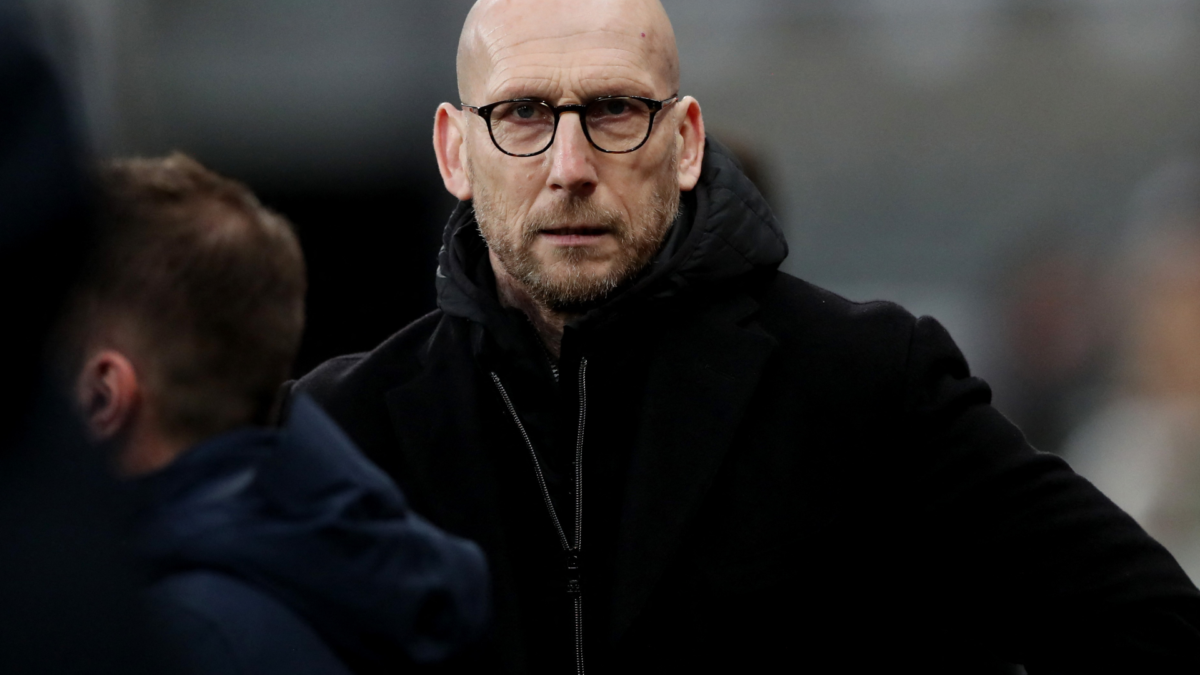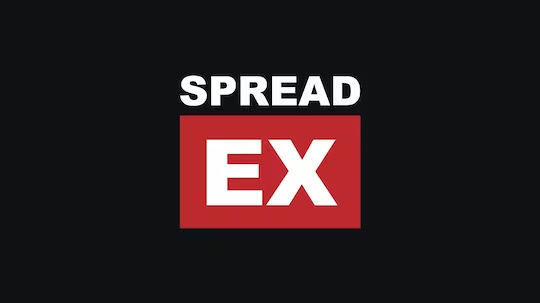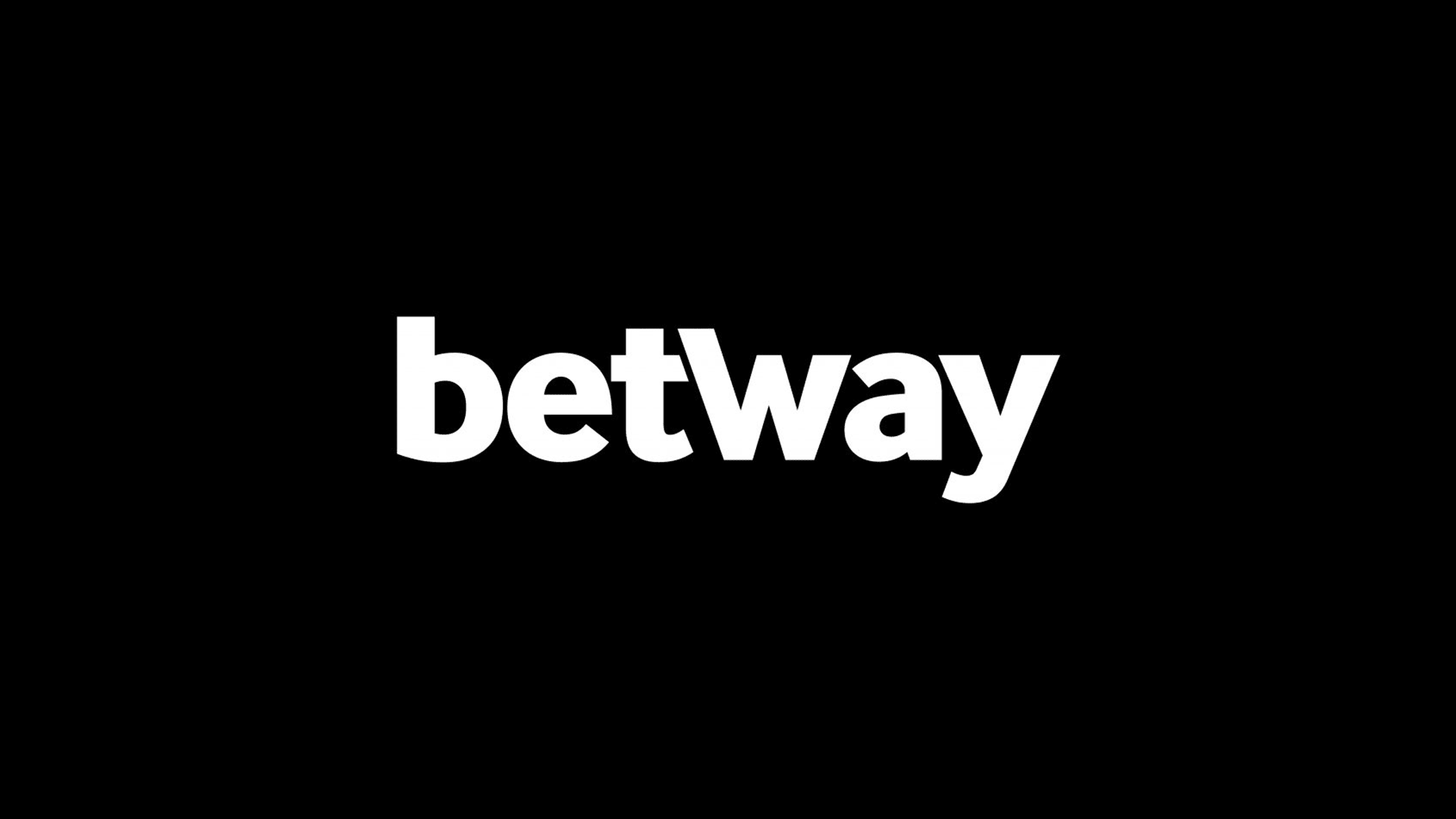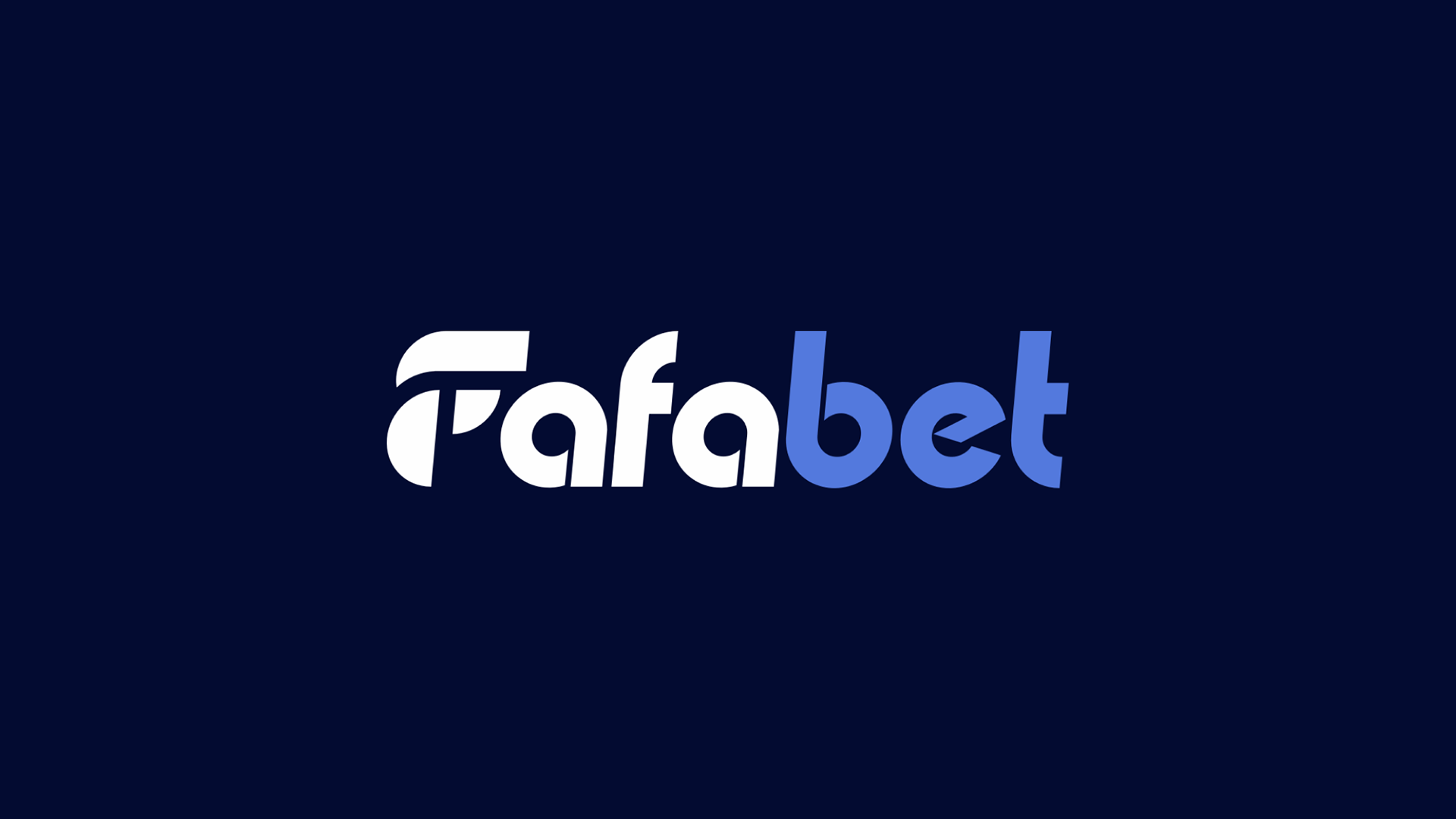EXCLUSIVE: Jaap Stam: Ruben Amorim Verdict, Van Dijk Contract and Bruno Fernandes' Future
 Joshua Kerr
Joshua Kerr 
This week, the team at Free Bets sat down with one of European football's all-time greats, Jaap Stam, to gather his verdict on some of the game's leading talking points, including his verdict on Ruben Amorim, Bruno Fernandes' future and Virgil van Dijk's ongoing contract saga.
Here's what Stam had to say when speaking exclusively to the team at Free Bets...
Stam on Hoijlund and Fernandes' Future
Q: Paul Scholes famously said strikers can't be coached after a certain age. With that in mind, do you think Rasmus Hojlund will ever have what it takes to be a Manchester United striker?
I believe so. I like him very much as a striker because he possesses all the tools you need to succeed, especially at United. The most important thing for him isn't something he’s lacking—it's what the team is missing: support.
As a striker, everyone knows you need service, you need opportunities to score. That’s been an issue, even under Ten Hag in a 4-3-3 system. Now, with Amorim’s new system, we're not seeing enough balls played up to Hojlund to give him chances to score.
For a number nine, the players around him have to create those opportunities. If they can focus more on that, and if the squad can bring in more quality to support him, I think Hojlund will be successful.
Q: Aside from the obvious, a goalscorer, what is the next priority position Ruben Amorim must address this summer?
When you look at his system, assuming Amorim continues with it next season, you need two quality number tens or two wingers playing inside—it depends on how you define it. Right now, Garnacho, Bruno, and sometimes Zirkzee are being used in those roles, but there’s still some uncertainty about the setup.
These positions are crucial because you need players who can create for a striker, who are comfortable on the ball, and who can also create opportunities for themselves.
The wing-back positions are equally important. Dalot can play there, but I don’t think he delivers enough crosses for the frontman to capitalise on. The new guy, Dorgu, looks promising but still needs time to adapt to the Premier League and the quality of the opposition.
Then you have the two holding midfield players are very important as well. Casemiro is playing there now, Ugarte, too, both quite static at times. These players need to be comfortable on the ball, able to receive from the center-backs, drive forward, and cover a lot of ground. They need the legs to go up and down the pitch because they often find themselves having to defend large spaces.
Right now, it seems like Amorim is still figuring out how he wants to structure those positions within his system.
Q: Bruno Fernandes is so often a level above his United team-mates. Could you see him leaving this summer?
I certainly hope not because, to be honest, if Bruno leaves, we’ve got nobody left who can consistently create or score for himself.
When a player stands out and consistently makes a difference, it’s natural that other teams will show interest. But I think United will do everything they can to keep him. For Amorim, for the manager, and for the team, he’s massively important.
He’s that one bright spark you have who can make a difference. We can say a lot about Bruno—how he acts or reacts to certain situations—but he always shows up and demonstrates his ability to change games. You need more players like that in your squad.
Q: As a centre back, what have you made of De Ligt at United? The perception is he has been in decline since he left Ajax…
When De Ligt was at Ajax, he was very young when he broke into the first team. They played a familiar 4-3-3 system that he knew well from the Ajax academy. Playing in the Netherlands is also easier because the overall quality of the opposition isn’t as strong. That period was a great learning curve for him during his early years.
Of course, his performances attracted a lot of interest, especially after showing what he could do in the Champions League. But moving to a different league, especially one as tactical and defensive as Italy, requires adaptation. The style of defending and the type of players around him were different, so naturally, expectations rose, and with that came some criticism.
Despite that, he played quite a few games in Italy and then later at Bayern as well. Sometimes the manager made different choices, playing Upamecano over him at the back, but that's part of football.
He's no longer a young talent—you can’t call him that anymore. He needs to be established and performing consistently. Coming to United, he needed time to adjust to the Premier League and the quality of the opposition. But I think he’s doing a decent job.
You can see he’s becoming more comfortable, especially playing in a back three. He’s defending well, making good tackles, and his ability on the ball is solid. His confidence is growing, and I think he’s proving himself to be a good defender for United.
Q: Ten Hag signed a lot of players from Holland or had played in Holland. Was that a mistake?
I wouldn’t call it a mistake, but it’s definitely a gamble. Moving from Holland to the Premier League is a big step for a manager, and hopefully, Ten Hag understood the quality he’d be facing.
Bringing in players from the Dutch league, where the level of competition is not as high as the Premier League, is always a risk. These players need time to adapt to the league, to the intensity of English football, and to the quality of the opposition.
A lot of players struggle with that transition. And when you’re signing them for significant sums of money, expectations are naturally high. If they don’t meet those expectations, the pressure and criticism mount quickly—for the players and the manager.
So, I wouldn't say it was a good choice to bring in so many players from Holland. Scouting and recruitment need to be precise. You have to be absolutely certain that the players you bring in can make a difference. If there’s any doubt, it’s probably best to look elsewhere.
Q: United will need a striker in the summer, which option would be the ideal fit for their team?
I’ve got confidence in Hojlund. Let’s stick with him and hope he can do the business rather than bringing in someone else.
Will Winning Europa League Salvage United's Season?
Q: Can Manchester United win the Europa League and would it salvage their season?
I think they can, yes. It’s a completely different competition where you only need to focus on certain key games. United have shown—under Amorim as well—that they have the ability to do that, even in the league, when they really concentrate on getting a result. That kind of focus is essential in European competitions.
So, yes, I believe they can win it. But would that make it a successful season? Not necessarily. It would be a good achievement, but if you look back at how the season has gone overall—bringing in a new manager, how the games have been played, and where they’ve finished in the league—it’s still disappointing. Their current position in the table isn’t something anyone can be satisfied with.
Winning the Europa League would at least be something to celebrate, and I think a few people in the boardroom would be pleased. But in the grand scheme of things, it doesn’t fully compensate for a poor league campaign.
Q: What are your thoughts on Amorim switching to a back-three in mid-season with a squad built for a back-four.
I think this squad was originally built for a 4-3-3 system. The players were recruited with that setup in mind. Now, I’m not saying playing that system was necessarily more successful, but you can see that, in certain moments, when players are positioned within a 4-3-3, they feel more comfortable.
When Amorim came in and switched to a back-three—or a back-five, depending on how you see it—you could see the players struggling. They were having trouble understanding how to occupy certain areas and find space to get on the ball and make a difference. Particularly, the two players in the middle of the park were struggling.
They’re expected to defend, run a lot, and cover large areas of the pitch. But the squad doesn’t currently have players who are well-suited to do that effectively. It’s clear when you watch the games that they're struggling with the system. It’s not always their fault; it’s also down to the system itself, which at times leaves them unsure of what to do.
The way they’re playing now is quite predictable. With a 4-3-3, you have more flexibility to switch positions, rotate, and make it more difficult for the opposition. With a back-three or back-five, you might be more solid defensively, closing gaps and limiting the space for the opposition’s attackers.
That said, Amorim probably feels he needs different players to make this system work—players who can cover more ground, bring more danger going forward, and inject energy into the team. So far, it hasn’t been convincing.
Amorim has tried various players in different positions, but that’s normal for a new manager. He likely discussed his system with the owners when he joined United and made it clear that he wanted to implement his own style. And that’s natural. Any manager wants to establish their own way of playing.
Q: Is that a risky move for a coach? In hindsight, would it have been better to wait for the summer? What challenges does it pose for the players? How would he have coped with it in his playing days?
It’s definitely a risky move, but it reflects how the club has been run over the last decade. Managers keep coming in, implementing their own systems, changing things around, and altering the squad. Players come and go, often at a high cost.
As a big club, you need to have a consistent philosophy—an identity. The club itself should have a clear way of playing, and then find a manager who fits that philosophy. Instead, what we’ve seen is players being brought in for one manager, then a different manager comes in and wants to change everything.
It’s a different way of thinking. Instead of constantly rebuilding around a new manager’s vision, the club should establish its philosophy and recruit managers who align with it. That way, you maintain consistency and avoid having to start from scratch every time.
In my playing days, I preferred having clarity and structure. Constantly changing systems can be frustrating because it’s hard to settle in and understand your role. Players need stability to thrive, and when you keep shifting philosophies, it disrupts progress.
Q: What have been your views on the three new defenders this season, Yoro, Dorgu and Heaven.
I think Dorgu is doing well. He’s showing promise, energy, and has the stamina to go up and down the pitch. It’s understandable that he can’t showcase everything he’s capable of in such a short period of time, especially being so young. But he’s showing improvement, which is what you want to see.
Yoro has been unlucky with injuries, so he hasn’t been fit consistently since joining. But he’s a young guy with the right tools. He’s solid defensively, has good pace, and can defend effectively in larger spaces. He’s also capable of driving forward with the ball.
However, he needs to improve when he’s in possession—finding the right passes and making the right decisions. That’s an area where his teammates, particularly the midfielders, need to support him by making themselves available for passes. It’s not all on him; it’s about the team working together.
As for Heaven, I’ve been impressed. He looks promising and shows great control over his game, especially in possession. He’s comfortable on the ball, drives forward with purpose, and understands when to step in or cover defensively.
He’s quick, has good awareness, and shows maturity in his decision-making, which is impressive for a young player at this level. Overall, he’s got a lot of potential.
Stam on Van Dijk, Slot and Liverpool winning a 20th League Title
Q: As a former Dutch great, what do you make of Virgil van Dijk's contract situation?
He’s been fantastic for Liverpool. As you approach the end of your contract, especially at his age, you have to carefully consider what you want next. Whether it’s staying, making a new step, or seeking a different challenge, it’s understandable that the decision might take some time.
From the club’s perspective, though, it would be strange to let him go. He’s still a phenomenal player and remains one of the best—if not the best—defender in the world. Liverpool should be doing everything possible to keep him.
He’s been so important for the club and has earned the respect of everyone. Under a new manager, he can still be successful, win more trophies, and continue building on what he’s already accomplished. I see him staying at Liverpool, to be honest. It would be a real shock if they let him go.
Q: What do you make of Virgil van Dijk being set to become the first Dutchman to lead an English team to a league title?
I think everyone in Holland would be thrilled if Liverpool wins the title. Maybe it’s a bit different for us as former United players, but regardless, there’s a lot of pride in seeing Arne Slot doing well as a manager and especially seeing Virgil achieving so much.
He’s been such a massive figure, not just for Liverpool, but for Dutch football as a whole. His journey, his growth, and his success have been incredible to watch. He’s built his career step-by-step and has earned everything along the way.
For Dutch people, there’s a lot of pride in seeing him succeed. And with other Dutch players in the Liverpool squad, it’s something everyone back home is keeping an eye on. We can only be proud of what he’s accomplished and continues to accomplish.

Joshua Kerr
Having completed a bachelor's degree in sports journalism and over five years of industry experience, Josh made the transition into digital PR and iGaming back in 2021 and has worked on leading award winning PR campaigns and projects for industry leaders, such as Betway, working within their UK, US and Canadian markets. Now working within GDC Group, Josh is part of the PR activation process for Freebets.com, the home of the best betting sites.




